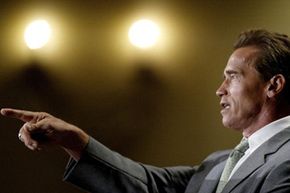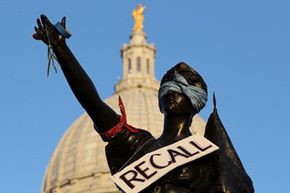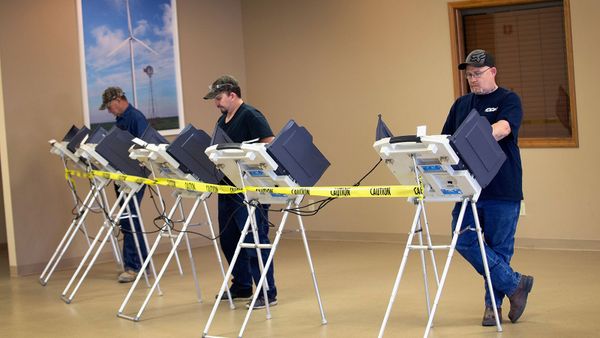No, it isn't just your imagination. The steady stream of news reports and protests that have dominated the airwaves lately makes it clear that Americans have recall fever. Consider this: In 2011 and 2012, there were 11 recall elections for state legislators, mostly in Wisconsin. To give you some perspective, there have only been 36 recall elections for state legislators total since the first was held in 1913 [source: NCSL]. In 2010, 57 mayors across America faced recall elections -- more than twice the amount of mayoral recalls in 2009 [source: Holeywell].
Recalls have become a popular tool of grassroots activism in an age of extreme political divisiveness. The message is clear: if you don't like the mayor, the governor or the chairman of the local school board, you don't have to wait for the next election. Kick the bums out!
Advertisement
A political recall is the process by which a public official is removed from office before his or her term is over. The recall process is designed to provide a check on the sovereign power of elected officials. If officials fail to represent the will of their constituency, then the voters have the power to take back their vote through a recall election.
Citizens can't recall federally elected officials like members of the U.S. Congress or the President. But at least 29 states have rules on the books for the recall of elected local officials like mayors, school board members and county commissioners, and 19 states allow for the recall of state elected officials like state legislators and governors [source: National Conference of State Legislators].
Every state that allows recalls has its own set of rules governing the recall process. Before a politician can be yanked from office, there are petitions to be signed, signatures to be certified and special elections to be organized. But before we get into the nitty-gritty details of the recall process, let's take a look at the colorful history of political recalls in the United States.
Advertisement




